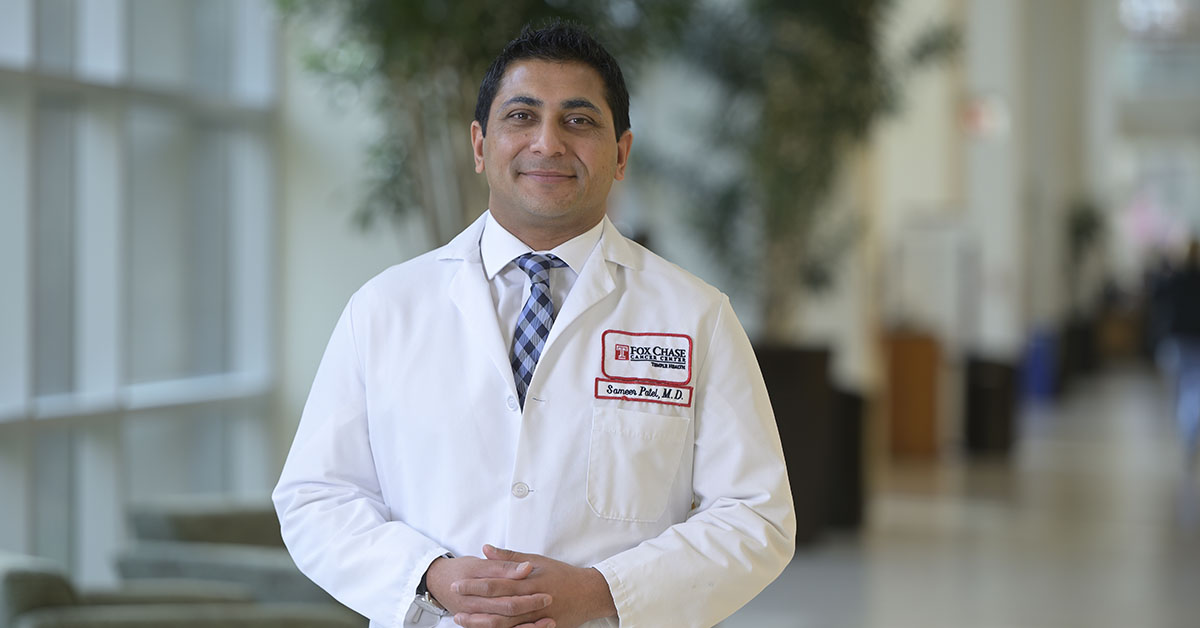
PHILADELPHIA (July 23, 2021) – The percentage of inflammatory breast cancer (IBC) patients selecting reconstructive surgery after mastectomy, whether immediate or delayed, remains low in spite of improvements in treatment and long-term survival, but the numbers are increasing, according to recent research.
A large study examined data over a 12-year period to evaluate trends, predictors, and survival for reconstructive surgery in IBC patients in the United States. The data came from the National Cancer Database and was for women who underwent mastectomy, with or without reconstruction for IBC, between 2004 and 2016.
Sameer A. Patel, MD, FACS, an associate professor in the Department of Surgical Oncology and chief of the Division of Plastic & Reconstructive Surgery at Fox Chase Cancer Center and Temple University Hospital, was the study’s senior author. The research involved additional researchers from Fox Chase and other centers.
Although the survival rate for women diagnosed with IBC has improved, Patel said current guidelines for reconstructive surgery in patients with IBC after mastectomy are based largely on expert opinion and are not data driven.
One example Patel gave was the prevailing opinion that if a patient is doing well reconstructive surgery should be delayed a year or two. Patel said he would like to see more evidence regarding optimal timing of reconstruction as well as ways to identify patients who have a favorable prognosis who may be good candidates for immediate reconstruction.
In the study, 1,307 of the 12,544 patients with IBC who underwent mastectomy also underwent reconstruction, with the percentage of patients undergoing reconstruction rising from 7.3% to 12.3% during the time period covered by the analysis. It was not clear from the data whether these were immediate or delayed reconstructions.
Patel cited the significant psychosocial benefits of immediate reconstruction, namely a patient’s self-perception. “There are clear benefits of immediate reconstruction from a patient well-being and self-image perspective, among other benefits,” he said.
Another benefit is that with improved techniques for breast reconstruction, including using patients own tissue as opposed to implants and better technology to assess blood flow, overall complications of breast reconstruction have been reduced over the years, leading to improved outcomes, Patel said.
Younger age, private insurance, higher income, performance of contralateral prophylactic mastectomy, and living within a major metropolitan area were all predictors of reconstruction, according to the data analysis.
Overall survival rates for the reconstructive group were higher than the nonconstructive group, 93.7 months versus 68.1 months, but overall mortality was not significant when adjusting for covariates.
Patel said more data are needed to determine who the best candidates for immediate reconstruction are. “For instance, it could be that patients with IBC who have a good or complete response to chemotherapy before surgery may be good candidates for reconstruction,” he said.
Patel added that he’d like to see more analysis and standardization and less “expert opinion” on this topic. “Are we denying immediate reconstruction to patients who may be good candidates for it?” he asked.
The study, “Breast Reconstruction in Inflammatory Breast Cancer: An Analysis of Predictors, Trends, and Survival From the National Center Database,” was published in the journal Plastic and Reconstructive Surgery.